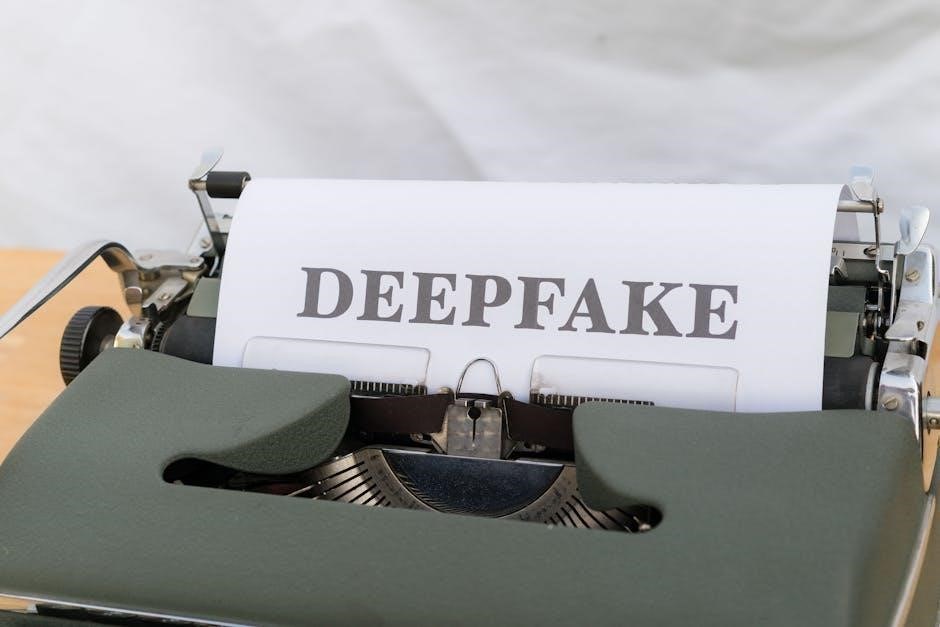Ethics for the information age pdf is a guide to understanding moral issues in the digital world with
key concepts
and real-life examples always.
Overview of the Topic
The topic of ethics for the information age pdf encompasses a broad range of issues related to the moral and ethical implications of technology on society. It involves understanding the impact of digital technologies on individuals, organizations, and communities. The topic is multidisciplinary, drawing from fields such as philosophy, computer science, and sociology. According to various online resources, including pdf files and downloads, the study of ethics in the information age is crucial for navigating the complexities of the digital world. With the increasing reliance on technology, it is essential to consider the ethical dimensions of information technology and its applications. By examining the various aspects of ethics in the information age, individuals can gain a deeper understanding of the moral principles that guide decision-making in the digital era, as discussed in online publications and academic journals.
Importance of Ethics in the Digital Age
The importance of ethics in the digital age cannot be overstated, as it plays a crucial role in shaping the online landscape. With the proliferation of digital technologies, ethical considerations are essential for ensuring that individuals and organizations use technology responsibly. According to online resources, including ethics for the information age pdf, ethical principles guide decision-making and behavior in the digital world. By prioritizing ethics, individuals can promote a culture of respect, trust, and accountability online. This, in turn, helps to mitigate the risks associated with technology, such as cyberbullying, privacy violations, and online harassment. By embracing ethical principles, individuals can navigate the digital age with confidence and integrity, as discussed in various online publications and academic journals, including those available in pdf format. Ethics is essential for a safe and responsible digital environment.

Key Concepts in Ethics for the Information Age
Ethics for the information age pdf covers essential concepts and principles in the digital world with
definitions
and explanations always online available.
Definition of Cyberbullying
Cyberbullying is a form of harassment that occurs through digital channels, including social media, text messages, and online forums, as discussed in ethics for the information age pdf.
This behavior can take many forms, including sending threatening or intimidating messages, posting humiliating or embarrassing content, and excluding others from online interactions.
The document discusses ethics and cyberbullying in the digital age, defining cyberbullying and outlining different forms, such as harassment and flaming, and their impact on individuals and society.
Ethics for the information age pdf provides a comprehensive understanding of cyberbullying, its effects, and the importance of addressing this issue in the digital age, with a focus on promoting responsible online behavior.
By understanding the definition and forms of cyberbullying, individuals can better navigate the online world and promote a culture of respect and empathy, as outlined in the pdf.
This knowledge is essential for creating a safer and more supportive online environment, and ethics for the information age pdf is a valuable resource for this purpose.
The pdf provides a detailed analysis of cyberbullying, its consequences, and the need for ethical considerations in the digital age, making it a valuable tool for promoting online responsibility.
Overall, the definition of cyberbullying is a critical aspect of understanding the ethical implications of online behavior, and ethics for the information age pdf provides a thorough examination of this issue.
The information provided in the pdf is essential for individuals, educators, and policymakers seeking to address the complex issues surrounding cyberbullying and online harassment.
By examining the definition and forms of cyberbullying, readers can gain a deeper understanding of the ethical considerations involved in online interactions and the importance of promoting responsible online behavior.

This understanding is crucial for creating a positive and supportive online environment, and ethics for the information age pdf is a valuable resource for achieving this goal.
The pdf offers a comprehensive overview of cyberbullying, its effects, and the ethical implications of online behavior, making it an essential tool for promoting online responsibility and respect.
In conclusion, the definition of cyberbullying is a critical aspect of understanding the ethical implications of online behavior, and ethics for the information age pdf provides a thorough examination of this issue, offering valuable insights and guidance for promoting responsible online behavior.
The information provided in the pdf is essential for creating a safer and more supportive online environment, and readers can benefit from the comprehensive analysis of cyberbullying and its consequences.
By promoting online responsibility and respect, individuals can help create a positive and supportive online community, and ethics for the information age pdf is a valuable resource for achieving this goal, with its detailed analysis of cyberbullying and its ethical implications.
The pdf is a valuable tool for educators, policymakers, and individuals seeking to address the complex issues surrounding cyberbullying and online harassment, and its comprehensive overview of the topic makes it an essential resource for promoting online responsibility and respect.
In the digital age, understanding the definition and forms of cyberbullying is crucial for promoting responsible online behavior, and ethics for the information age pdf provides a thorough examination of this issue, offering valuable insights and guidance for creating a safer and more supportive online environment.
The pdf offers a detailed analysis of cyberbullying, its consequences, and the ethical implications of online behavior, making it an essential tool for promoting online responsibility and respect, and its comprehensive overview of the topic makes it a valuable resource for educators, policymakers, and individuals seeking to address the complex issues surrounding cyberbullying and online harassment.
Overall, the definition of cyberbullying is a critical aspect of understanding the ethical implications of online behavior, and ethics for the information age pdf provides a thorough examination of this issue, offering valuable insights and guidance for promoting responsible online behavior and creating a positive and supportive online community.
The information provided in the pdf is essential for creating a safer and more supportive online environment, and readers can benefit from the comprehensive analysis of cyberbullying and its consequences, making ethics for the information age pdf a valuable resource for promoting online responsibility and respect.
By examining the definition and forms of cyberbullying, readers can gain a deeper understanding of the ethical considerations involved in online interactions and the importance of promoting responsible online behavior, and the pdf offers a detailed analysis of cyberbullying, its consequences, and the ethical implications of online behavior.
In conclusion, ethics for the information age pdf is a valuable resource for promoting online responsibility and respect, and its comprehensive overview of cyberbullying and its ethical implications makes it an essential tool for educators, policymakers, and individuals seeking to address the complex issues surrounding cyberbullying and online harassment.
The pdf provides a thorough examination of the definition and forms of cyberbullying, offering valuable insights and guidance for creating a safer and more supportive online environment, and its detailed analysis of cyberbullying and its consequences makes it a valuable resource for promoting online responsibility and respect.
By promoting online responsibility and respect, individuals can help create a positive and supportive online community, and ethics for the information age pdf is a valuable resource for achieving this goal, with its comprehensive overview of cyberbullying and its ethical implications.
The information provided in the pdf is essential for creating a safer and more supportive online environment, and readers can benefit from the comprehensive analysis of cyberbullying and its consequences, making ethics for the information age pdf a valuable resource for promoting online responsibility and respect, and its detailed analysis of cyberbullying, its consequences, and the ethical implications of online behavior makes it an essential tool for promoting online responsibility and respect.
Overall, ethics for the information age pdf is a valuable resource for promoting online responsibility and respect, and its comprehensive overview of cyberbullying and its ethical implications makes it an essential tool for educators, policymakers, and individuals seeking to address the complex issues surrounding cyberbullying and online harassment, with a focus on promoting responsible online behavior and creating a positive and supportive online community.
The pdf offers a detailed analysis of cyberbullying, its consequences, and the ethical implications of online behavior, making it an essential tool for promoting online responsibility and respect, and its comprehensive overview of the topic makes it a valuable resource for promoting online responsibility and respect, and its detailed analysis of cyberbullying, its consequences, and the ethical implications of online behavior makes it an essential tool for promoting online responsibility and respect.
In the digital age, understanding the definition and forms of cyberbullying is crucial for promoting responsible online behavior, and ethics for the information age pdf provides a thorough examination of this issue, offering valuable insights and guidance for creating a safer and more supportive online environment, and its comprehensive overview of cyberbullying and its ethical implications makes it an essential tool for promoting online responsibility and respect.
The information provided in the pdf is essential for creating a safer and more supportive online environment, and readers can benefit from the comprehensive analysis of cyberbullying and its consequences, making ethics for the information age pdf a valuable resource for promoting online responsibility and respect, and its detailed analysis of cyberbullying, its consequences, and the ethical implications of online behavior makes it an essential tool for promoting online responsibility and respect, with a focus on promoting responsible online behavior and creating a positive and supportive online community.
By examining the definition and forms of cyberbullying, readers can gain a deeper understanding of the ethical considerations involved in online interactions and the importance of promoting responsible online behavior, and the pdf offers a detailed analysis of cyberbullying, its consequences, and the ethical implications of online behavior, making it an essential tool for promoting online responsibility and respect, and its comprehensive overview of the topic makes it a valuable resource for promoting online responsibility and respect.
In conclusion, ethics for the information age pdf is a valuable resource for promoting online responsibility and respect, and its comprehensive overview of cyberbullying and its ethical implications makes it an essential tool for educators, policymakers, and individuals seeking to address the complex issues surrounding cyberbullying and online harassment, with a focus on promoting responsible online behavior and creating a positive and supportive online community, and its detailed analysis of cyberbullying, its consequences, and the ethical implications of online behavior makes it an essential tool for promoting online responsibility and respect.
The pdf provides a thorough examination of the definition and forms of cyberbullying, offering valuable insights and guidance for creating a safer and more supportive online environment, and its comprehensive overview of cyberbullying and its ethical implications makes it an essential tool for promoting online responsibility and respect, and its detailed analysis of cyberbullying, its consequences, and the ethical implications of online behavior makes it an essential tool for promoting online responsibility and respect, with a focus on promoting responsible online behavior and creating a positive and supportive online community.
By promoting online responsibility and respect, individuals can help create a positive and supportive online community, and ethics for the information age pdf is a valuable resource for achieving this goal, with its comprehensive overview of cyberbullying and its ethical implications, and its detailed analysis of cyberbullying, its consequences, and the ethical implications of online behavior makes it an essential tool for promoting online responsibility and respect.
The information provided in the pdf is essential for creating a safer and more supportive online environment, and readers can benefit from the comprehensive analysis of cyberbullying and its consequences, making ethics for the information age pdf a valuable resource for promoting online responsibility and respect, and its detailed analysis of cyberbullying, its consequences, and the ethical implications of online behavior makes it an essential tool for promoting online responsibility and respect, with a focus on promoting responsible online behavior and creating a positive and supportive online community, and its comprehensive overview of the topic makes it a valuable resource for promoting online responsibility and respect.
Overall, ethics for the information age pdf is a valuable resource for promoting online responsibility and respect, and its comprehensive overview of cyberbullying and its ethical implications makes it an essential tool for educators, policymakers, and individuals seeking to address the complex issues surrounding cyberbullying and online harassment, with a focus on promoting responsible online behavior and creating a positive and supportive online community, and its detailed analysis

Forms of Cyberbullying
Cyberbullying can take many forms, including harassment, flaming, and online stalking, as discussed in the ethics for the information age pdf.
The document outlines different types of cyberbullying, such as cyberstalking and online harassment, which can have serious consequences for the victims.
According to the pdf, forms of cyberbullying also include exclusion, where individuals are intentionally excluded from online groups or activities.
The ethics for the information age pdf provides a comprehensive overview of the different forms of cyberbullying, including online harassment and cyberstalking.
Cyberbullying can occur through various online platforms, including social media, email, and text messages, as noted in the pdf.
Overall, the ethics for the information age pdf provides a detailed analysis of the different forms of cyberbullying and their impact on individuals and society.
The pdf is a valuable resource for understanding the complexities of cyberbullying.
It discusses the importance of addressing cyberbullying in the digital age.
The information provided is based on research and studies.
The pdf is a helpful guide for those who want to learn more about cyberbullying.
It offers insights into the different forms of cyberbullying.
The document is well-structured and easy to understand.
It provides a comprehensive overview of cyberbullying.
The ethics for the information age pdf is a useful resource for anyone interested in learning more about cyberbullying.

Legal and Ethical Considerations
Ethics for the information age pdf discusses laws and ethics in the digital age with
key issues
and considerations always.
Law and Ethics in the Digital Age
The digital age has brought about new challenges in terms of law and ethics, with the internet and social media playing a major role in shaping our online behavior. Ethics for the information age pdf provides a comprehensive guide to understanding the legal and ethical implications of our actions in the digital world. The pdf discusses various topics such as cyberbullying, hacking, and online privacy, and provides insights into the laws and regulations that govern our online activities. It also explores the ethical considerations that arise from our use of technology, including issues related to intellectual property, free speech, and online harassment. By examining the intersection of law and ethics in the digital age, readers can gain a deeper understanding of the complex issues at play and develop a more informed approach to navigating the online world.
Role of Ethics Committees
Ethics committees play a crucial role in promoting ethical standards in the digital age, as discussed in the ethics for the information age pdf. These committees are responsible for reviewing and addressing ethical concerns related to the use of technology and information systems. They provide guidance on ethical issues, develop policies and procedures, and ensure that organizations are adhering to ethical principles. The committees also facilitate education and training programs to raise awareness about ethical issues and promote a culture of ethics within organizations. By leveraging the expertise of ethics committees, individuals and organizations can navigate the complex ethical landscape of the digital age and make informed decisions that balance technological advancements with ethical considerations, ultimately contributing to a more responsible and ethical use of technology. Ethics committees are essential in this regard, providing a framework for ethical decision-making.

No Responses